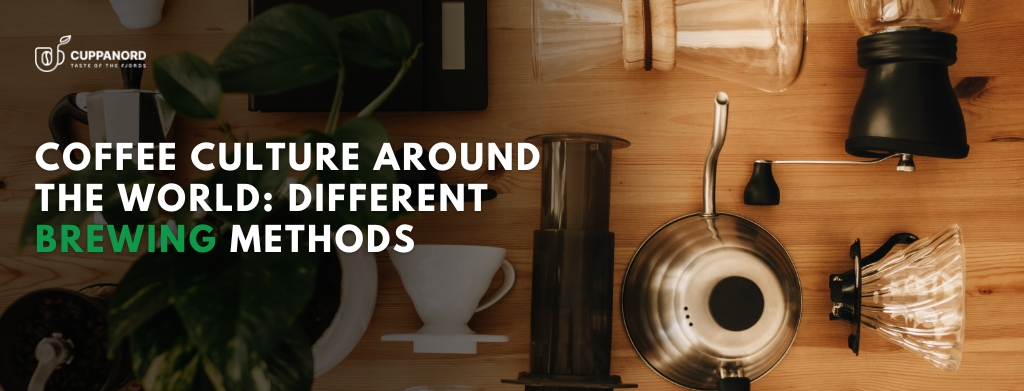Coffee is an experience, or something greater than that. Certainly an ingredient in most of our mundane lives today. Whether it be morning awakeners, times needing to catch up with friends, or even just being left alone with the best company, coffee is for everyone. The application is endless, as coffee is just that versatile, offering different flavors, preparations, and experiences for each occasion. Whether you’re searching for the best coffee near me or exploring new ways to enjoy it, coffee always has something to offer.
The Morning Ritual of Coffee
For most, the beginning of a new day is not marked until the first cup of coffee is taken. It is the warm comfort, the rich aroma, and that first sip that ignites your senses and sets you free to take the day.
The smell of freshly brewed coffee is pure magic. While some love that strong shot of espresso, others take pleasure in swigging traditional black coffee or a foamy cappuccino. This beverage awakens most from slumber. No joy equals that first sip of the best coffee for me, whether made in a drip coffee maker, French press, or any of those new gizmos bubbling with much pretentiousness about espresso.
For the perpetual-on-the-run, super-easy coffee options constitute a life-saver: single-serve pods, instant coffee, or ready-to-drink brewed coffee. These make getting your caffeine fix effortless and stress-free.
Making and Drinking Coffee Ritual
It is not so much about drinking coffee as it is about experiencing it. Taking a few extra moments to make your coffee just the way you like it can be a peaceful, meditative process. From pouring the just-right amount of cream and sugar to experimenting with flavored syrups or frothing milk for a homemade latte, such rituals can set the mood for a great day.
If there is something coffee is famous for in the minds of its many users, it is enhancing concentration and productivity. It is the elixir of life for last-minute-studying students, professionals stretching through long hours of meetings, and anyone else who needs a perk.
Coffee, the Gift of Productivity
Caffeine, the main active ingredient in coffee, stimulates the central nervous system and increases its activity, making you take note of all that needs your concentration while blocking out distractions. It keeps you sharper with no mental fatigue and even enhances memory retention. Caffeine, in all likelihood, may refill your mind and redirect its focus if consumed through short coffee breaks while at work.
Choosing the Right Coffee for Productivity
Not all coffee is the same when it comes to productivity. Some people prefer an espresso kick to get them started, while others enjoy slowly sipping a cup of cold brew. Cold brew, especially, tends to release caffeine gradually, providing a sustained concentration boost without the sudden crash that some experience with regular coffee. No matter your preference, opting for quality coffee beans ensures that every sip is as effective as it is delicious.
Socializing over Coffee
Ah! One of the best things about coffee is that it brings people together: Coffee dates, catch-up coffees, or even business meetings sometimes occur over steaming cups of coffee.
Why Coffee is a Social Drink
Coffee shops are an excellent place for friends to reconnect, coworkers to meet, or even strangers to socialize. The inviting environment of a café encourages conversation to flow effortlessly. Simple call-out-styled invitations such as “let’s grab a coffee” might very well ignite friendships and create wonderful memories.
Each coffee shop has its own character. Some are modern and chic, with students perched over laptops, sipping spiced lattes. Others are cozy hideaways where one can escape the hustle and bustle of everyday life. Exploring different coffee places feels like a journey through taste, heart, and soul. If you ever wonder where to go for your next coffee break, a quick search for the best coffee near me will help you find the perfect spot.
Relax and Pamper Yourself
Although coffee is generally regarded as something that wakes you up and keeps you alert, there are times when coffee does just the opposite—it takes care of you and helps you relax.
A hot cup of decaf in the evening is one of the finest remedies for relaxation. It’s best for unwinding after a long day when caffeine isn’t needed, but the comforting taste and aroma are still welcome. Whether you’re lying down with a good book or simply enjoying a peaceful moment on the balcony, coffee can be the ultimate relaxation formula.
Coffee is also a wonderful gift for skincare, as it has amazing benefits beyond being just a drink. Many people swear by DIY coffee scrub kits, which exfoliate the skin and leave it feeling smooth and fresh. Coffee is known to de-puff, brighten, and treat cellulite, making it a natural beauty secret. Other delightful ways to absorb the benefits of coffee include coffee masks, which rejuvenate and refresh the skin.
Conclusion
Coffee serves countless functions: it wakes us up in the morning, keeps us productive during the day, connects us with friends, and helps us unwind. Such versatility is what makes it one of the most adored beverages across the globe. Whether you’re looking for coffee for everyone, exploring quality coffee beans, or searching for the best coffee for me, coffee continues to be the magic elixir that enriches every moment. So take a sip and walk through the magic of coffee at every occasion!










